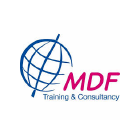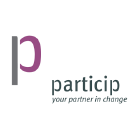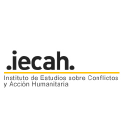WORKING WITH DG ECHO AS AN NGO PARTNER | FPA 2014 - 2020
CONDITIONS FOR THE ELIGIBILITY OF COSTS
“Eligible costs” are costs, which meet the following criteria.
Please note that these criteria apply to both the partner signing the Specific Grant Agreement and its potential implementing partners.
NECESSARY FOR THE ACTION
The fundamental eligibility requirement is that costs are eligible when they are useful and needed for the achievement of the results. The costs must be essential for the performance of the operation in question. In other words, they would not have been incurred if the action had not taken place.
The question of necessity of a cost is the first question to be asked in case of doubt about the eligibility of a cost.
In some cases, the assessment of the fulfilment of the “necessity” requirement is not easy. This is the case, for instance, of equipment purchased towards the end of the Action. This assessment will be based on the operational information provided by the partner or by ECHO.
At this regard, please note that equipment purchased towards the end of the action is in most cases considered as not necessary for the Action and will be declared ineligible unless duly justified operationally.
INCURRED DURING THE ELIGIBILITY PERIOD OF THE ACTION
A cost is incurred when the related goods, equipment, services or works have been used in connection with the Action and are incurred during the eligibility period of the Action set out in the Article 2.3 of the Specific Grant Agreement.
The fact that a legal commitment has been made (e.g. signature of a legally binding agreement or issuing a purchase order) is not sufficient for the costs to be eligible. This means that:
- a) in the case of services and works, the costs should relate to activities performed during the eligibility period of the Action,
- b) in the case of supplies, the costs should relate to supplies distributed/made available to the beneficiaries during the eligibility period of the Action.
Partner should be prepared to demonstrate that a cost has been actually incurred, for instance, during ECHO audits. Auditors may ask to visit specific Action locations (distribution points, shelter construction sites, etc.) to verify that the supplies have been delivered or used during the eligibility period. During an HQ audit, auditors will check all the supporting documents related to the Action and the relevant dates (i.e. distribution lists, logbook, employment/service contracts, reports on end of works, post-distribution monitoring report, but also payment vouchers, bank statements, tender files including bids not accepted, derogation forms signed at applicable level, etc.). This example list includes the costs incurred by implementing partners.
As a rule, in case the partner realises the costs will be incurred after the end of the eligibility period, it should inform ECHO as soon as possible and ask for a no-cost extension through a modification request.
The only exceptions to this rule are the costs related to:
-
a) the preparation of the final report: costs necessary for the drafting of the final report (salary of maximum 1 full time staff or equivalent, for the period of the Final Report specified in the SGA + the overheads linked to the work of this staff).
-
b) post-distribution monitoring activities: costs for the staff in charge of post distribution monitoring and related running costs.
-
c) final evaluation of the Action: costs relating to the draft of the final evaluation, both external and internal.
-
d) final audit of the Action: only if the audit is an essential requirement under the applicable national legislation for the partner to operate in the country of the Action
These costs shall also be deemed eligible, even if incurred after the eligibility period of the Action;
As concerns the payment of the costs already incurred, the partner should note that the costs that are not paid by the end of the eligibility period should ideally be paid by the time of submission of the final payment request, if not, they must be booked as debts in the accounts of the partner until the cost is paid.
In case the costs are not paid at the time of the audits without a justification, the actual and real nature of the costs may be challenged.
IDENTIFIABLE AND VERIFIABLE
The costs must be
- recorded in the accounting records of the partner, and
- compliant with the accounting standards of the country of registration of the partner and its usual cost accounting practices.
- backed by supporting evidence (e.g. invoices, receipts, agreements, time-sheets, etc).
The partner does not have to provide those supporting evidences with the Final Report, but it has to have them available at ECHO's request or in case of audits. Indirect costs do not need to be backed by supporting evidence during audits.
REASONABLE, JUSTIFIED, AND COMPLY WITH THE PRINCIPLE OF SOUND FINANCIAL MANAGEMENT
This principle means that the budget of the Action must be used in accordance with the principles of economy and efficiency.
-
The principle of economy requires that the resources used in the pursuit of an activity be made available in due time, in appropriate quantity and quality and at the best price.
-
The principle of efficiency refers to the best relationship between resources employed and results achieved.
Throughout the Action, the partner will have to make sure that this principle is respected. At the end of the Action, in cases where this principle could not be respected, the partner will have to justify the reasons and the impact on the result. When no valid justification can be provided, costs may be declared ineligible.
COVERED BY THE BUDGET OF THE ACTION
This requirement means that all the costs must be included in the overall budget of the Action. It does not mean that all those costs will be “visible” in the financial statement, as the financial statement presents only the costs up to a certain level of detail (level 3).
Eventually, all the costs that will be presented in the ledger at Final Report stage must fall into one of the budget headings presented on the Financial Statement annexed to the Single Form.
At this regard, please note that transfers between budget lines do not require ECHO prior approval.
COMPLY WITH THE REQUIREMENTS OF APPLICABLE TAX AND SOCIAL LEGISLATION
The partner must comply with the applicable tax and social legislation e.g. the legislation of the country of registration of the partner and of the country of implementation.
Finally, please note that ECHO will only pass judgement as to the actual eligibility of costs at the liquidation stage when determining the balance to be paid. Costs that do not meet the eligibility conditions will be declared ineligible and disallowed accordingly.
The mere fact that certain costs are being mentioned in the financial part of the Single Form at proposal stage and thereafter is irrelevant, as this cannot overrule the otherwise applicable eligibility conditions.
REFERENCE, DOCUMENTS & USEFUL LINKS






